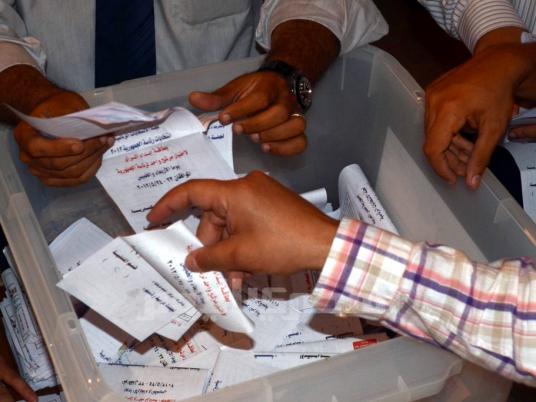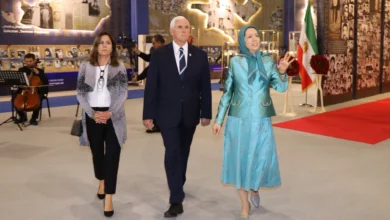
While most opposition forces are opting to vote “no” in the referendum on the constitution held on Saturday, boycott is also considered an option by some.
The opposition does not only reject the constitution for its content, but also for the fact that it was conceived through an assembly that was controlled by Islamists. President Mohamed Morsy called for the referendum in the midst of increasing polarization between Islamist forces and their opponents, who had been protesting his powers grab through hasty decrees.
Morsy, who holds the power of the legislature until a new parliament is elected, issued a decree on 22 November that essentially immunized the Constituent Assembly from potential judicial dissolution. The assembly then rushed the ratification of the constitution before the president was compelled to rescind the decree after mass protests.
The Popular Current, which grew out of the campaign of dark-horse presidential candidate Hamdeen Sabbahi, has decided to participate in the referendum slated for Saturday by voting no, sources in the movement said.
The group planned to hold a vote among its members on Tuesday to decide whether to push for a no vote or to boycott the referendum, according to Popular Current spokesperson Hossam Moanes.
“The Current is a very decentralized organization,” he said. “The main unit is the village, or district. Every village or district has a leader, and they’re connected to the executive office here for exchanging information.”
Like other major opposition parties, the Popular Current has decided to avoid arguing over specific articles in the draft constitution, instead describing the entire document as a biased product forced on the country by one authoritarian faction — the Muslim Brotherhood — rather than the outcome of national consensus.
“We are saying no to the Guide’s constitution, no to the Brotherhood’s constitution,’” Moanes said, referring to Brotherhood Supreme Guide Mohammed Badie.
Befitting Sabbahi’s socialist principles, the Current will also make the case that the draft constitution provides no guarantees for social or economic justice, in addition to complaints over the wide authority given to the president and Islamic law, Moanes said.
Sabbahi, who came in third in the first round of presidential elections last May with more than five million votes, is one of the more radical voices in the National Salvation Front, the umbrella coalition of Egypt’s major opposition parties.
He is the only prominent member of the Front to have publicly called for Morsy to leave office. The Front has thus far shied away from making such a demand.
Addressing a small crowd in Tahrir Square on Friday — two days after bloody clashes between Morsy supporters and the opposition left 10 people dead — Sabbahi said that Morsy had to leave; he had blood on his hands, and it was too late to negotiate.
Sabbahi, along with other opposition leaders in the National Salvation Front such as Mohamed ElBaradei and Amr Moussa, is the target of a lawsuit alleging an illegal conspiracy to overthrow the government. The suit was submitted to state prosecutors by lawyer Hamed Sediq, but it is unclear whether it will have any effect.
Like Sabbahi, Moanes said he believed Morsy should leave. He said the Popular Current would support the direct election of a new Constituent Assembly if the draft constitution does not pass. If it does pass, he said, it is still only a matter of time before the constitution falls, whether through legal means or popular pressure.
“When the president came through the ballot box, we had to respect him and the institution, but what happened is that Morsy resorted to Brotherhood militias to defend him and used powers to issue a constitutional declaration … in that case, we cannot call it democracy,” he said. “[The vote] is also a referendum on the legitimacy of Morsy.”
While the Brotherhood's discourse has been centered on the opposition's disrespect for the electoral legitimacy of Morsy, his opponents have been arguing that a slim 51 percent margin of victory – when many people’s vote was a vote to keep Mubarak-era figure Ahmed Shafiq from the presidency – does not give the president the authority to amass greater powers. Nor would similar results at the referendum indicate legitimacy or popular consensus for the constitution.
The Social Democratic Party has also decided to participate, voting no, with its members braced to promote that choice in the remaining hours ahead of polling.
"We are using television and newspapers ads, YouTube videos and other online tools, but we are also going further than that," explained Amany al-Khayat, the party's media coordinator. "Since last October, and since a pseudo final draft of the constitution started circulating, we started forming groups to raise awareness in different villages and governorates, especially in places where poverty rates are high. We also target groups that the constitution addresses specifically."
Party members have engaged with the workers of the industrial city of Mahalla, where a recent wave of protests against Mosry and the Brotherhood resulting in a declaration of the "autonomous republic of Mahalla" in a gesture of dissidence. Khayat explained that with these groups, the party has been talking about how the constitution stipulates associating wages with productivity, which could prove detrimental to workers operating in aging factories like in Mahalla. According to her, many of the workers were not aware of these articles, until these conversations took place.
"Not only in Mahalla," said Khayat, "but also in Upper Egypt. In Assiut, groups from the party have worked with local communities on eradicating the sectarian tendencies in the voting process, especially because the area has been prey to Islamist groups with their history of violence. We discovered that some people would choose to vote 'no' just because they are afraid that these groups will resort to violence if they don't win."
"Working with the marginalized is what will resolve who will win in this electoral battle," she concluded.
Vacillating between boycotting and voting no, the Dostour Party finally opted for the latter, although its leader ElBaradei was inclined to a boycott in objection to the whole premise of holding a referendum on a constitution over which there is no national consensus.
"The party retreated on the boycott position and decided to call for a 'no' vote as the right option in order to avoid divisions in the ranks of the opposition," explained Abdul Rahman Mansour, a founding member of the Dostour Party. He added that even though the leadership delayed its position, most party members were inclined to the 'no' vote.
Even the party of former presidential candidate and Brotherhood defector Abdel Moneim Abouel Fotouh opted for a 'no' vote, although the party distanced itself from the mounting polarization between Islamists and their opponents in the last few weeks. Abouel Fotouh described specific problems in the draft constitution in a video posted this week on the Internet and called on his followers to mark 'no' on their ballots.
The contentious points cited by Abouel Fottouh, who finished fourth in the presidential elections, include the weak allocations for social justice, the preservation of the military institution's privileged position and continued concentration of power in the president's hands. Abouel Fottouh did not address questions pertaining to Sharia, its definition in the draft and its potential effect on limiting freedoms, which is feared by most of the opposition.
However, other groups like the Free Egyptians Party have decided to take the route of boycotting the referendum altogether. According to Hossam Fouda, member of the party's political bureau, the boycott demonstrates the rejection of the entire process.
"There is no proper constitution to speak of, and to consider holding such a referendum in the absence of any law or security forces is highly illogical and dangerous," he said.
Asked whether there is a danger of weakening the opposition by opting for a boycott while others are voting no, Fouda said, "That danger exists regardless. Everyone already knows what the result of the referendum will be. In all cases, this is an unfair situation. It’s highly likely that the votes will be tampered with and the whole election rigged. You also must consider certain facts, such as that there has not been sufficient time for anyone to properly study the articles in the constitution. So, how can you call this process fair?"




